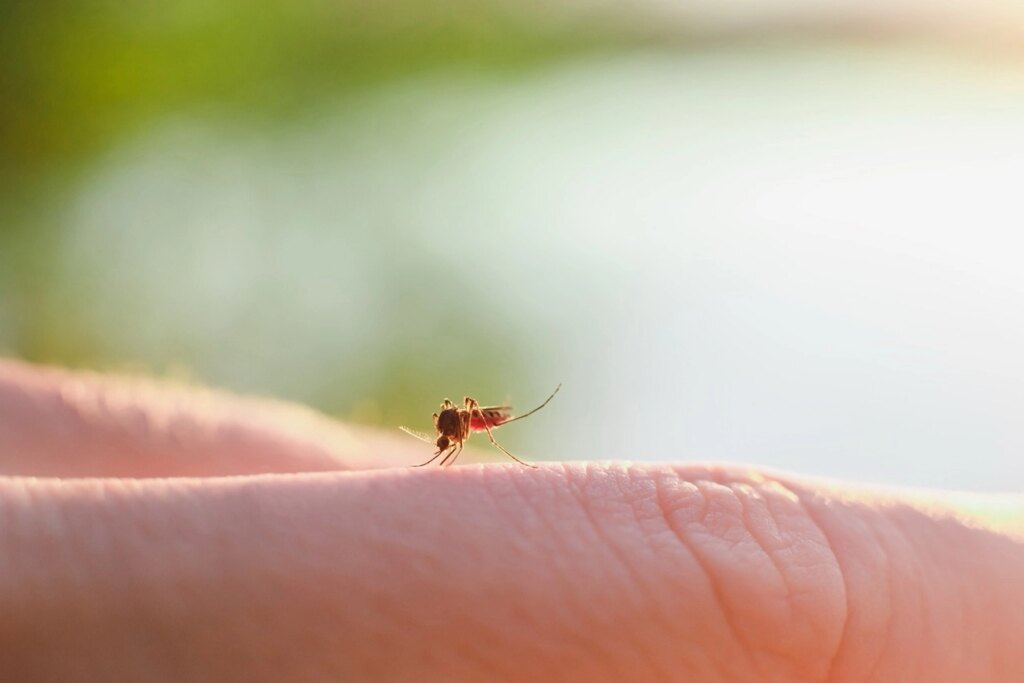If April showers bring flowers, May showers bring insufferable misery by way of blood-sucking micropredators. Yes, we mean mosquitoes. And northeast Texas is prepped to see more of them than usual this summer, thanks to rounds upon rounds of recent heavy rain.
Indeed, less than six months into the year, Dallas has already been deluged with 28 inches of rain—approximately three-fourths of the 37 inches that we receive in an average year. But as stormy forecasts finally give way to the hot, sunny days to which our area is accustomed, don’t breathe a sigh of relief; it only means that swarms of skeeters are on their way.
Think we’re being hyperbolic? Bryant McDowell, an entomologist at the Texas A&M AgriLife Research and Extension Center at Dallas, corroborates that dog bowls, bird feeders, and garden fountains filled with standing water are big enough to hatch thousands, if not millions, of mosquitoes. “Mosquitoes can breed anywhere,” he says.
There are two main variants of mosquitoes: house and floodwater. Though the former are present year-round, the latter are the cause of the populations that accompany the rain. Floodwater mosquitoes can lay up to 500 eggs in a water supply the size of a water bottle cap, according to Robert Morris, service manager at Mosquito Joe North Dallas.
“Mosquitoes are the hardest pest to control,” Morris says. “Mosquito elimination is impossible; the best we can do is control.”
Both McDowell and Morris offer the same advice for homeowners wishing to holistically control the mosquito population: Keep AC units dry, frequently clean your gutters, and generally reduce the resting water supply. (Good news for pool owners: Chlorinated water is inhospitable for floodwater mosquitoes, though the chemical does nothing to deter the regular population.) Mulch is a dream for the pests due to its water-retentive properties, notes Morris, who adds that the most important tip is to not overwater your lawn.
As for individualistic efforts to achieve summer legs free of itchy bites, wearing long-sleeved, loose-fitting clothing is one of the best ways to stay protected. (“Bite” is actually a misnomer, nor is it a sting; the needlepoint pin-prick is akin to a blood draw. The resulting itch is caused by the remaining saliva left behind by the mosquito.) Avoid being outside during dusk and dawn, which is prime feeding time for skeeters. And you can’t go wrong with a bottle of trusty DEET.
“A plant-based repellent is your best bet against mosquito bites,” says McDowell. “They leave you a little oily because of the lemongrass, but they’re really effective. You can make it yourself.”
Aside from being annoying, bites can carry real health risks as well—such as mosquito-borne illnesses like Zika and West Nile, the latter of which was responsible for two deaths in DFW last year. The season’s first cases of the virus were detected in area mosquitoes earlier this week.
“Risk of disease increases as the population of mosquitoes rise,” says McDowell. “The population grows as the temperatures rise.”
Of course, with eight inches of rain falling in the last several weeks alone, breeding is already well underway. And with temperatures expected to continue climbing into the 90s this week—and the thermostat due to move in only one direction for the next three months—mosquito season is, unfortunately, officially upon us.
Author




